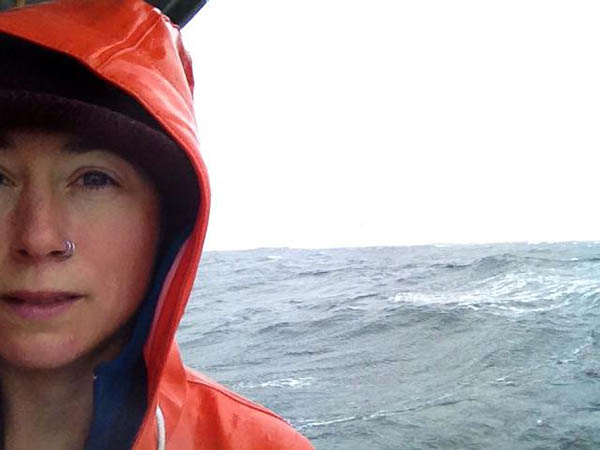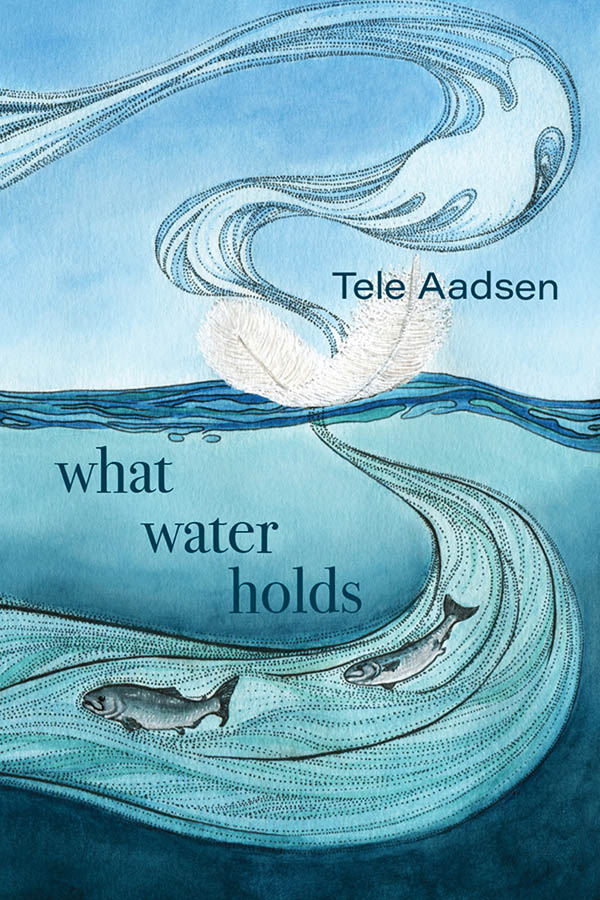I was 11 years old when Bligh Reef ripped open the Exxon Valdez’s steel belly, bleeding over 40,000 tons of crude into the pristine waters of Prince William Sound. My family had traded Alaskan residency for our migrant lifestyle by then, setting up a winter life in Washington State and returning to Southeast every summer for the salmon season. I remember staring at the images on TV — seabirds grounded by sludge-drenched wings, dead otters like blackened driftwood — and wearing a T‑shirt that expressed despair through furious satire: caricatures of a party boat perched “on the rocks,” newly christened the Exxon Fuxxup.
Twenty-three years later, I’m sitting aboard a boat in Southeast Alaska, my body re-calibrating to the continual motion of a life cushioned by the sea. The view is stunning. Living in the midst of the world’s largest remaining temperate rainforest, surrounded by mountains, glaciers, and a parade of wildlife, it’s sometimes hard to remember that this splendor isn’t guaranteed. That however firmly rooted nature appears to be, we can’t take her for granted or become indifferent to our responsibilities as good stewards.
Poet Vivian Faith Prescott is a fifth generation Alaskan who knows all too well the cost of indifference — environmental, cultural. She knows that when horror is so vast, grief so unspeakable, art provides a life raft. Her post, “Fetched Up Hard Aground: Remembering the Exxon Valdez Oil Spill,” pulls readers into that life raft. If you’re not familiar with her work, please take a moment to visit Vivian at Planet Alaska.
Named and gendered, boats take on identities independent of the captains who come and go. They’re sized up and judged, bestowed with reputations that can’t be absolved with a change in ownership or a new name. So what was the fate of the ship forever shackled to one of the most devastating human-caused environmental disasters? The Mudflats blog answered that question earlier this week: “The Exxon Valdez Gets Its Death Sentence.”
In our sound-bite society, with social media’s barrage of moment-by-moment news updates, we’re good at year-of tributes. Succinct summaries of what happened back when and where they are now. This post is a perfect example — I wrote in that exact formula, without a second thought. And now I wonder… We remember, but what have we learned?
Update: Immediately after posting this, I learned that Mudflats had re-posted her 2010 story, “Walking With the Ghost of Exxon.” A powerful account of what she found lingering in Prince William Sound 21 years after the spill — long after we’d been assured that everything was cleaned up — this is on Hooked’s “Required Reading” list. Please do read and share.




Thanks Tele for keeping the issue alive. You might look up the Northwest Fisheries Science Center fish toxicology program for much more on the provable toxic effects of the Exxon oil spill and what should be expected out of the Deepshit Horizon GOM spill.
I am not only angry over the chemical damage, but the social damage that prevails in the world right now. Environmental protection is so often painted as the enemy of the working person who needs gas to get to work, who wants a job somewhere. You are right on by reframing the issue to what is going to happen to our planet if we destroy our environment. Where will food come from if global temperatures soar as they did in Russia a few years back and the wheat crop failed? Or when SE Asia was flooded and rice prices jumped beyond many people’s budget.
Sorry to be grumpy, but I see very little conscience in any political leader concerning the environment and it is concerning that we are leaving a dead planet to the future occupants.
I don’t hear you as grumpy, Joel, but as a deeply conscious, thinking person who does his damnedest for the well-being of others, and sees very little response in matched efforts or appreciation. I’m astounded by the ways in which working and middle class people have been pitted against our own best interests, and am thankful for your advocacy.
Thanks Tele, I remember the devastation and controversy and everything. I think tis event is what brought environmental awareness into my life, one of the catalysts, when I was a teenager. It is very important to me for that reason.